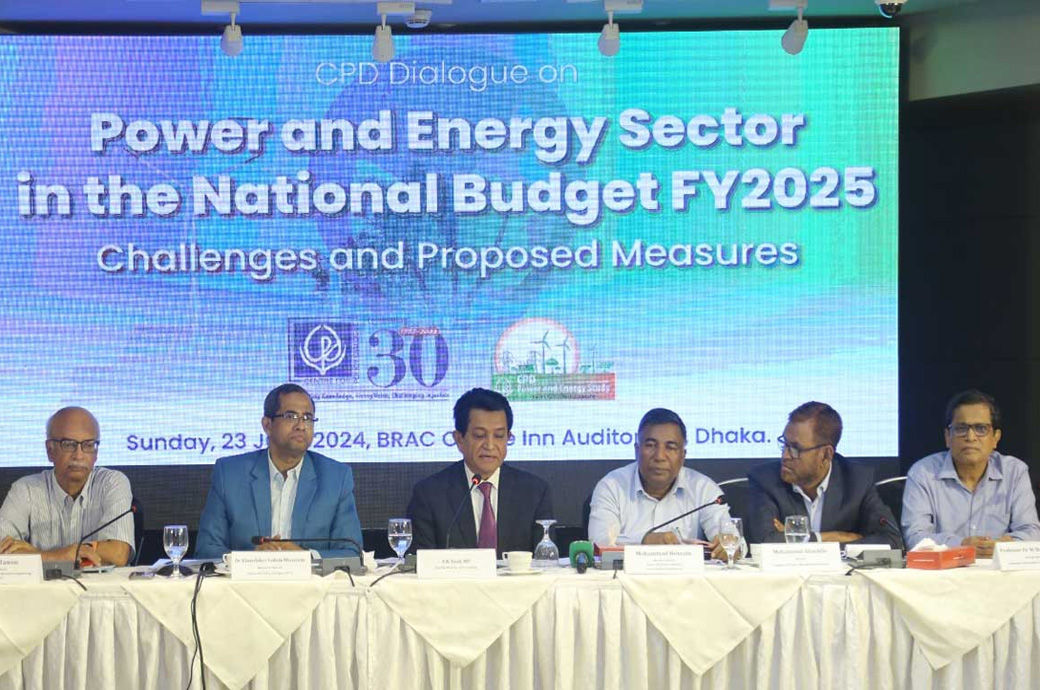

The think-tank laid emphasis on proper planning, allocation, implementation and monitoring for both energy sustainability and transition.
The latest budget includes measures like promoting coal and setting unnecessarily ambitious power demand targets, which oppose energy transition and sustainability, said a CPD study, whose findings were presented recently at a dialogue organised by the think tank in Dhaka.
“The power and energy sectors are facing challenges that require careful fiscal, budgetary and policy planning for electricity generation, transmission, distribution and domestic gas transmission,” CPD research director Khondaker Golam Moazzem said.
He called for reducing over-generation capacity by ensuring the budget reaffirms the government’s commitment to phasing out old, outdated and expensive fuel-based plants when their contractual periods end.
To reduce load-shedding, he emphasised that the budget should enhance allocations for drilling more gas wells to reach the set targets. Increasing domestic gas production is crucial for meeting energy demands and reducing dependency on external sources.
Moazzem also called for expediting renewable energy projects. Public investment in renewable energy-based generation and transmission, including the development of a smart grid system, requires urgent attention.
He said the target of drilling 48 wells by 2025 will not be achievable unless the priority shifts from liquefied natural gas (LNG) import to domestic gas exploration. More gas well workover projects should be undertaken to meet the daily gas requirement of 2,000 mmcf/d with domestic gas.
Relying heavily on imported LNG could increase Bangladesh’s vulnerability to global price fluctuations and political issues between countries, he said.
He stressed the need for targeted allocation to complete the transmission and distribution (T&D)-related projects and develop a smart grid system.
He called for a strategic budgetary allocation for energy transition. The non-climate change relevant budget, 92.42 per cent in FY2025, should not be used to promote fossil fuel-based power production, he said.
Instead, a portion of that budget should be allocated for phasing out fossil fuel-based power plants. Increasing the percentage of the total budget allocated for this purpose is crucial to breaking the carbon lock-in in the power division, he added.
Fibre2Fashion News Desk (DS)